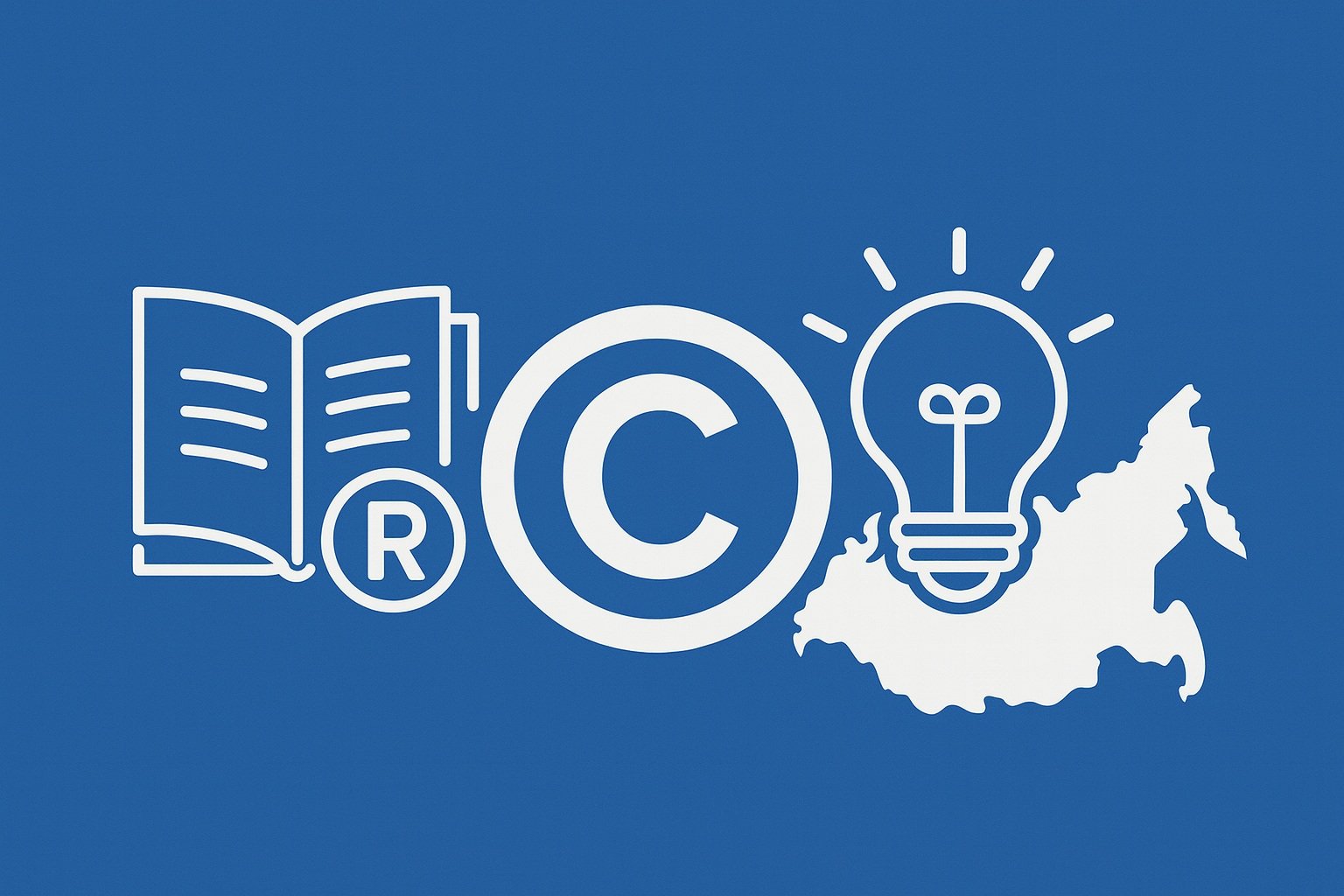Intellectual Property (IP) rights in Russia are an essential legal mechanism for protecting the creations of the mind — from brand names and inventions to literary works and industrial designs. As Russia continues to engage with international markets, understanding the IP framework becomes increasingly important for both domestic and foreign businesses.
1. Overview of IP Law in Russia
The legal framework for intellectual property in Russia is primarily governed by Part IV of the Civil Code of the Russian Federation. This section consolidates all IP-related laws into a single code, covering patents, trademarks, copyright, industrial designs, and related rights. Russia is also a party to major international treaties, including the Paris Convention for the Protection of Industrial Property, the Berne Convention, and the Patent Cooperation Treaty (PCT), which facilitates cross-border protection.
2. Categories of Intellectual Property in Russia
Russian law recognizes multiple forms of IP protection:
- Trademarks – Signs, logos, or names used to identify goods and services. Registration is required for legal protection, and the process is administered by Rospatent, the Federal Service for Intellectual Property.
- Patents – Legal protection for inventions, utility models, and industrial designs. Inventions are protected for 20 years, utility models for 10 years, and industrial designs for 5 years (renewable up to 25 years).
- Copyright – Covers literary, artistic, and scientific works. Protection is automatic from the moment of creation and lasts for the life of the author plus 70 years.
- Geographical Indications (GIs) – Identifies products originating from a specific location that have unique qualities tied to that region.
- Trade Secrets – Confidential business information protected against unfair use.
3. Registration Process
While copyright protection arises automatically, trademarks, patents, and GIs must be registered with Rospatent. The typical steps for registration include:
- Application Filing – Submission of required forms, descriptions, and supporting documents.
- Formal Examination – Verification of compliance with formal requirements.
- Substantive Examination – Review of novelty, originality, or distinctiveness.
- Decision and Registration – Once approved, the IP is recorded in the official registry and a certificate is issued.
4. Enforcement of IP Rights
IP rights holders in Russia have several enforcement mechanisms:
- Civil Actions – Lawsuits for damages, injunctions, or destruction of infringing goods.
- Administrative Proceedings – Complaints filed with authorities such as the Federal Antimonopoly Service (FAS).
- Criminal Prosecution – Applicable in cases of large-scale infringement or counterfeiting.
5. Recent Developments in Russian IP Law
Recent reforms have focused on:
- Streamlining the registration process through electronic filing systems.
- Increasing penalties for counterfeiting and piracy.
- Expanding recognition of digital assets and software as IP.
6. Practical Tips for Businesses and Creators
- Register Early – In Russia, IP rights are generally granted to the first applicant, not the first user.
- Monitor the Market – Regularly check for potential infringements to act quickly.
- Work with a Trademark and patent Attorney – The Russian IP system can be complex, especially for foreign applicants.
- Consider International Protection – If your business operates globally, use the Madrid System for trademarks or the PCT for patents.
Conclusion
Intellectual property rights in Russia provide strong legal tools for protecting creativity, innovation, and brand identity. However, the system requires proactive management, from timely registration to vigilant enforcement. Whether you are an entrepreneur, inventor, or multinational corporation, understanding the Russian IP landscape is crucial for safeguarding your assets.
Our experienced patent and trademark attorneys are ready to assist you with any questions or procedures related to intellectual property protection in Russia.
